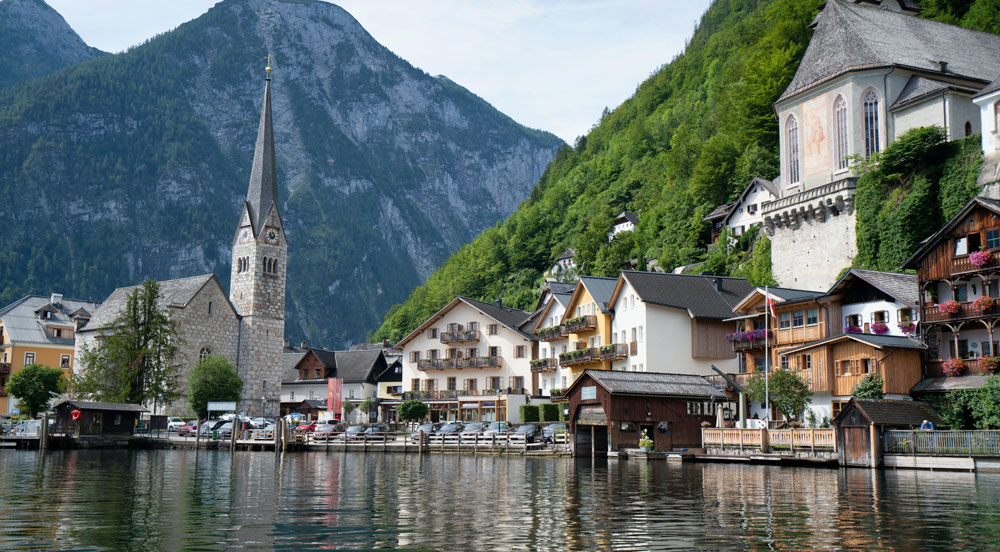Planning Destination Events: 16 Tips for Successful Coordination and Execution
Planning and coordinating destination events, such as conferences, trade shows, or corporate retreats, requires careful organization and attention to detail. These types of events offer unique opportunities for networking, professional development, and memorable experiences.
However, the logistics and coordination involved in hosting a destination event can be complex. In this blog post, we will provide event planners with essential tips and insights to ensure successful planning, coordination, and execution of destination events, regardless of whether you are a vendor or an organizer.
Tip #1 - Define Your Objectives and Budget:
Before diving into the planning process, clearly define the objectives and goals of your destination event. Determine the purpose of the event, target audience, expected outcomes, and the budget available. This foundation will guide all subsequent decisions and ensure that your event aligns with the desired outcomes.
Tip #2 - Select the Ideal Destination:
Choose a destination that suits the theme and purpose of your event. Consider factors such as
- accessibility
- local attractions
- infrastructure
- suitability for the type of event you are planning
Research venues, hotels, and event spaces that can accommodate your anticipated number of attendees and provide the necessary facilities and services.
Tip #3 - Establish Local Partnerships:
Develop strong relationships with local vendors, service providers, and destination management companies (DMCs). Collaborating with experienced professionals who are familiar with the local area will help you navigate logistical challenges, provide insider knowledge, and ensure a smooth planning process.
Engage vendors early on and clearly communicate your requirements and expectations.
Tip #4 - Leverage Technology:
Utilize event management software and technology platforms to streamline your planning and coordination efforts. These tools can assist with attendee registration, ticketing, session scheduling, communication, and on-site logistics. Additionally, consider using virtual or hybrid event solutions to expand your reach and provide flexibility for attendees who may be unable to travel.
Tip #5 - Provide Comprehensive Information:
Communicate vital details to attendees well in advance.
Create a dedicated event website or portal that includes information about
- The destination/location
- Travel options/getting there
- Accommodation recommendations or discounts
- Local attractions and sight-seeing
- Event agendas
- Local tours and tips
This will help attendees plan their trip and make the most of their experience.
Tip #6 - Plan Engaging Experiences:
Incorporate unique and engaging experiences that take advantage of the destination's offerings. Organize networking events, team-building activities, or optional tours and excursions that showcase the local culture, cuisine, or landmarks.
Encourage attendees to explore the destination and create memorable experiences beyond the event itself.
Tip #7 - Coordinate Transportation:
Arrange transportation logistics to and from the destination, as well as for on-site transfers. Provide clear instructions and options for attendees, including airport transfers, shuttle services, or car rental recommendations.
Consider the proximity of accommodations to the event venue and provide convenient transportation solutions to minimize logistical challenges.
Tip #8 - Facilitate Networking Opportunities:
Design your event schedule to include dedicated networking sessions, social gatherings, and interactive activities. Incorporate ice-breaker activities, group discussions, or themed receptions to foster connections among attendees.
Encourage collaboration and provide platforms or tools to facilitate networking before, during, and after the event.
Tip #9 - Localize Marketing and Branding:
Tailor your marketing and branding efforts to resonate with the destination and its unique characteristics.
Incorporate local elements into your event branding, promotional materials, and signage. Partner with local influencers, businesses, or media outlets to enhance your event's visibility and appeal within the local community.
Tip #10 - Plan for Contingencies:
Destination events can be susceptible to unexpected challenges such as weather conditions, transportation delays, or venue issues. Create contingency plans to address these potential disruptions and have alternative options readily available. Establish clear communication channels to keep attendees informed in case of any changes or updates.
Tip #11 - Provide On-Site Support:
Ensure that you have a dedicated on-site team to manage the logistics and address any issues that may arise during the event. This team should include event staff, volunteers, and local support personnel who are familiar with the venue and destination. Assign specific roles and responsibilities to each team member to ensure efficient coordination and seamless execution.
Tip #12 - Consider Cultural Sensitivity:
When planning a destination event, it's essential to be mindful of the cultural norms, customs, and sensitivities of the host country or region. Research and understand local traditions, etiquette, and business practices to avoid any unintentional cultural misunderstandings or offensive behaviors. Respect the local culture and incorporate elements that showcase and celebrate it appropriately.
Tip #13 - Engage Local Speakers and Experts:
Incorporate local speakers, industry experts, or thought leaders into your event program. This not only provides attendees with valuable insights but also adds a local perspective and authenticity to the content. Local speakers can share their expertise, share regional success stories, and contribute to a diverse and enriching experience for attendees.
Tip #14 - Sustainable Practices:
Adopt sustainable practices in your destination event planning to minimize environmental impact and promote responsible tourism. Encourage recycling, minimize food waste, use eco-friendly materials, and support local suppliers who prioritize sustainability.
Incorporate sessions or discussions on sustainability and encourage attendees to participate in eco-conscious activities during the event.
Tip #15 - Evaluate and Seek Feedback:
After the destination event concludes, take the time to evaluate its success and gather feedback from attendees, vendors, and partners. Conduct post-event surveys, analyze data, and assess whether the event met its objectives. Use the feedback received to improve future destination events and build stronger relationships with attendees and stakeholders.
Tip #16 - Maintain Communication and Relationships:
Stay connected with attendees and maintain relationships beyond the event. Follow up with personalized thank-you messages, share event highlights, and provide resources or materials related to the event content. Utilize social media, email newsletters, and online communities to nurture ongoing engagement and keep the event community connected.






